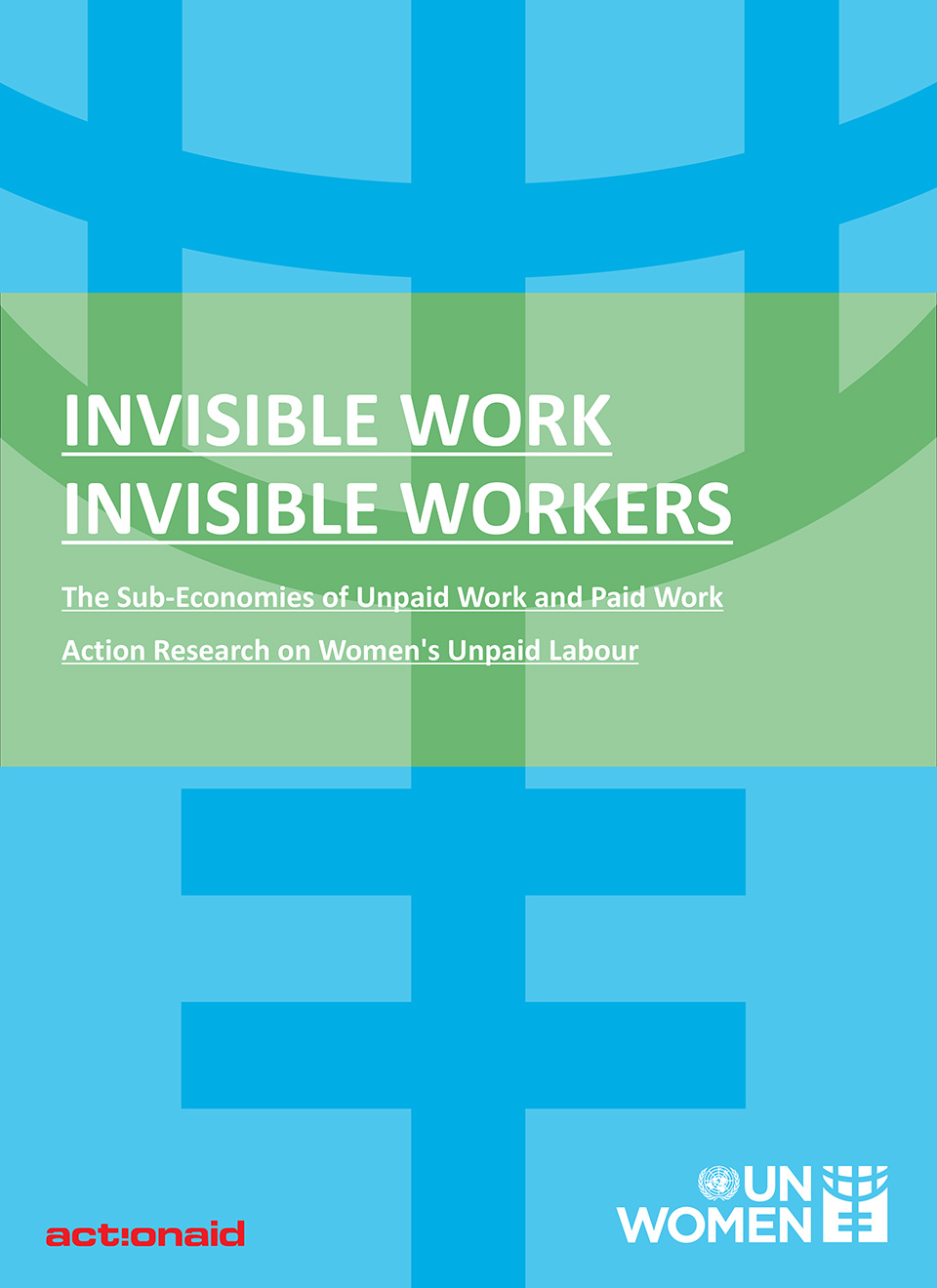
Addressing women’s unpaid work in India: Informing policy and practice from a global South perspective

Since 2014, UN Women has played a significant role in convening diverse stakeholders to respond to and localize the emerging and new global paradigms on women’s unpaid work, with a special focus on Goal 5 of the Sustainable Development Goals (SDGs). A loose alliance called the Collective on Women’s Unpaid Work was formed to support the development of a common roadmap for policy and action, which included the recognition, reduction and redistribution of women’s unpaid work across subsistence livelihoods, labour markets and care. For the report of the Collectives’ national workshop.
As part of the roadmap, it was proposed that a study be undertaken to (a) document the paid and unpaid continuum of women’s work and (b) to identify policy gaps therein. To start implementing this roadmap, UN Women partnered with ActionAid India Association, to generate evidence on the continuum of women’s paid-unpaid work in the specific context of construction and agriculture workers, combined with building capacities of grassroots women’s collectives and gender equality activists to take up the ensuing recommendations for policy advocacy; with a focus on addressing women’s work in sectors such as energy, water and care. Specific findings from the study indicate the need for conceptual and methodological refinement of measuring ‘work’, both paid and unpaid – especially in context of multiplicity, intensity, drudgery and simultaneity of women’s work. At the same time it highlights key policy recommendations, including need for macroeconomic analysis, and identifying fiscal policy gaps in addressing women’s unpaid work. Read the full report and the policy brief from this study.